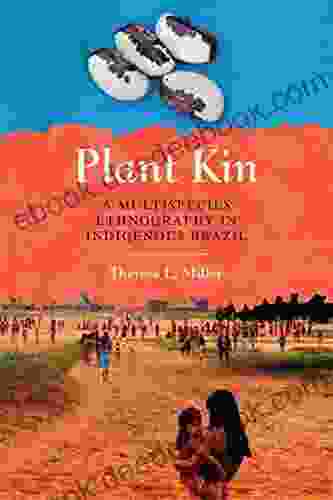Multispecies Ethnography in Indigenous Brazil: Exploring the Interconnections Between Humans and Non-Humans

In the lush and diverse ecosystems of indigenous Brazil, human communities have long coexisted with a rich tapestry of non-human species, forming intricate relationships that have shaped both human and non-human worlds. In recent years, a growing number of anthropologists and ethnobiologists have turned their attention to studying these interconnections through the lens of multispecies ethnography.
4.5 out of 5
| Language | : | English |
| File size | : | 28139 KB |
| Text-to-Speech | : | Enabled |
| Screen Reader | : | Supported |
| Enhanced typesetting | : | Enabled |
| Print length | : | 310 pages |
Multispecies ethnography is an approach to anthropological research that recognizes the agency and significance of non-human species in human societies. It seeks to understand how humans and non-humans interact, communicate, and shape each other's lives. By studying these relationships, multispecies ethnography offers insights into the complex ways in which humans and non-humans coexist and depend on each other for survival.
Louann Atkins Temple's Work in Multispecies Ethnography
One of the pioneers of multispecies ethnography in indigenous Brazil is Louann Atkins Temple, an anthropologist and ethnobiologist at the University of California, Berkeley. Temple's research has focused on the indigenous Kaxinawá people of western Amazonia, who have a deep and multifaceted relationship with the local flora and fauna.
In her book "Kaxinawá Ethnography: The Anthropology of a Native Amazonian People," Temple explores the Kaxinawá's understanding of their environment as a living, sentient being. She argues that the Kaxinawá do not view humans as separate from the rest of nature, but rather as part of a complex web of interconnected relationships.
Temple's research has shown that the Kaxinawá have a deep understanding of the medicinal properties of plants and animals, and they use this knowledge to treat a wide range of illnesses. She has also documented the Kaxinawá's hunting and fishing practices, which are based on a deep respect for the animals they hunt and fish.
Methodologies and Ethical Considerations in Multispecies Ethnography
Multispecies ethnography presents unique methodological and ethical challenges for researchers. One of the key challenges is how to represent the perspectives of non-human species in ethnography. Temple and other multispecies ethnographers have employed a variety of methods to address this challenge, including:
- Participant observation: Researchers spend extended periods of time living with indigenous communities, observing and recording interactions between humans and non-humans.
- Interviews and conversations: Researchers conduct interviews with indigenous people to gain their perspectives on their relationships with non-humans.
- Ethnobotanical and ethnozoological studies: Researchers study the indigenous people's knowledge and use of plants and animals, which can provide insights into their relationships with the natural world.
Multispecies ethnographers also face important ethical considerations in their research. They must respect the rights of both human and non-human participants, and they must take care not to harm or exploit the animals or plants they study.
The Importance of Multispecies Ethnography for Indigenous Worldviews and Environmental Sustainability
Multispecies ethnography has the potential to make significant contributions to our understanding of indigenous worldviews and the importance of interspecies relationships for the well-being of both humans and the environment.
By documenting the complex ways in which indigenous people interact with their environments, multispecies ethnography can help us to challenge Western notions of human exceptionalism and to appreciate the interconnectedness of all living things.
Additionally, multispecies ethnography can provide valuable insights into the importance of biodiversity conservation. By understanding the close relationships between indigenous people and the plants and animals around them, we can gain a better understanding of the potential impacts of human activities on ecosystems and the importance of preserving these relationships for the long-term sustainability of both human and non-human communities.
Multispecies ethnography is an emerging field of research that is providing new insights into the complex relationships between humans and non-humans. By studying these relationships, multispecies ethnographers are challenging traditional anthropological approaches and offering new perspectives on the interconnectedness of all living things.
The work of Louann Atkins Temple and other multispecies ethnographers is helping us to understand the importance of interspecies relationships for the well-being of both humans and the environment. It is our hope that this research will continue to contribute to our knowledge of indigenous worldviews and to inspire us to live in greater harmony with the natural world.
4.5 out of 5
| Language | : | English |
| File size | : | 28139 KB |
| Text-to-Speech | : | Enabled |
| Screen Reader | : | Supported |
| Enhanced typesetting | : | Enabled |
| Print length | : | 310 pages |
Do you want to contribute by writing guest posts on this blog?
Please contact us and send us a resume of previous articles that you have written.
 Novel
Novel Page
Page Chapter
Chapter Reader
Reader Library
Library Magazine
Magazine Newspaper
Newspaper Paragraph
Paragraph Sentence
Sentence Bookmark
Bookmark Shelf
Shelf Glossary
Glossary Bibliography
Bibliography Annotation
Annotation Footnote
Footnote Scroll
Scroll Tome
Tome Autobiography
Autobiography Reference
Reference Encyclopedia
Encyclopedia Dictionary
Dictionary Narrator
Narrator Resolution
Resolution Librarian
Librarian Catalog
Catalog Card Catalog
Card Catalog Borrowing
Borrowing Study
Study Scholarly
Scholarly Lending
Lending Reserve
Reserve Academic
Academic Reading Room
Reading Room Rare Books
Rare Books Special Collections
Special Collections Thesis
Thesis Dissertation
Dissertation Awards
Awards Book Club
Book Club Textbooks
Textbooks S Yvonne
S Yvonne Chris Mooney
Chris Mooney Kerric Harvey
Kerric Harvey Lisa D Delpit
Lisa D Delpit Stephen King
Stephen King W Jeff Bishop
W Jeff Bishop Jill Lepore
Jill Lepore Jude Collins
Jude Collins Sean Burke
Sean Burke Project Management Institute
Project Management Institute Larry Carmichael
Larry Carmichael William Boniface
William Boniface John C Fortier
John C Fortier Ronan Wielewski Botelho
Ronan Wielewski Botelho Chris W Surprenant
Chris W Surprenant Craig Speck
Craig Speck Marina Carr
Marina Carr Susan Rose Ackerman
Susan Rose Ackerman Peter C Rimensberger
Peter C Rimensberger Louis Mendola
Louis Mendola
Light bulbAdvertise smarter! Our strategic ad space ensures maximum exposure. Reserve your spot today!

 Chuck MitchellInternational Love Supreme: A Captivating Novel of Love, Ambition, and Global...
Chuck MitchellInternational Love Supreme: A Captivating Novel of Love, Ambition, and Global...
 Leon FosterThe Ultimate Guide to Language Learning for Beginners: A Step-by-Step Roadmap...
Leon FosterThe Ultimate Guide to Language Learning for Beginners: A Step-by-Step Roadmap...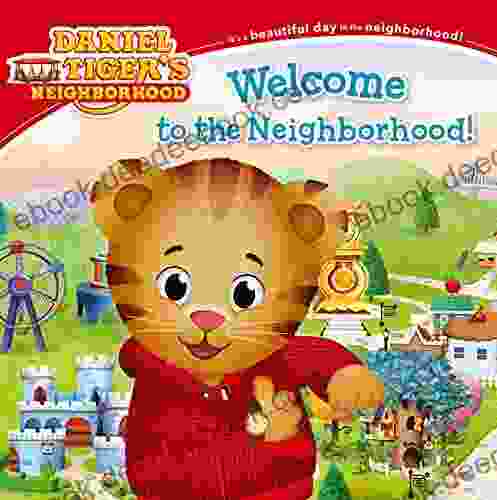
 Demetrius CarterWelcome to the Neighborhood, Becky Friedman: An Engaging Exploration of...
Demetrius CarterWelcome to the Neighborhood, Becky Friedman: An Engaging Exploration of... Chad PriceFollow ·15.3k
Chad PriceFollow ·15.3k Cameron ReedFollow ·14.8k
Cameron ReedFollow ·14.8k William FaulknerFollow ·14.7k
William FaulknerFollow ·14.7k Efrain PowellFollow ·8k
Efrain PowellFollow ·8k Gordon CoxFollow ·18.5k
Gordon CoxFollow ·18.5k Ernest PowellFollow ·15.6k
Ernest PowellFollow ·15.6k Cason CoxFollow ·17.4k
Cason CoxFollow ·17.4k Ian PowellFollow ·2.3k
Ian PowellFollow ·2.3k
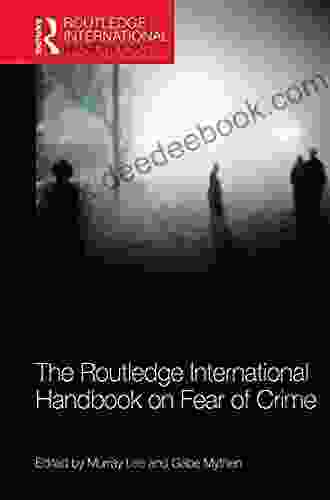
 E.E. Cummings
E.E. CummingsThe Routledge International Handbook on Fear of Crime
Fear of crime is a serious problem that can...

 Fletcher Mitchell
Fletcher MitchellThe Hunchback in Hellenistic and Roman Art: A...
The hunchback, or kyphosis, is a physical...
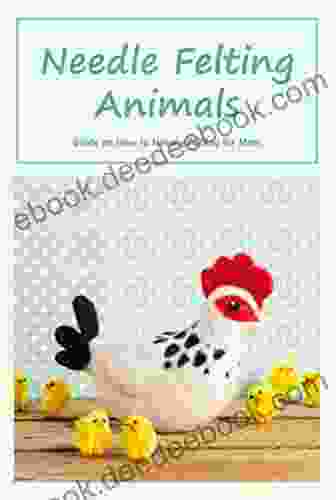
 Victor Turner
Victor TurnerA Comprehensive Guide to Needle Felting for Moms:...
Needle felting, a captivating craft...
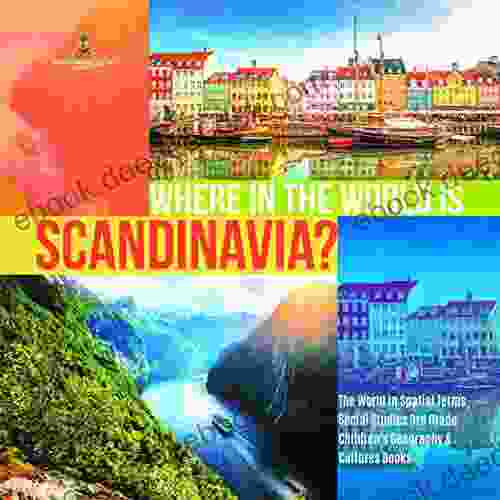
 Joseph Foster
Joseph FosterWhere is Scandinavia?
Scandinavia is a region in...

 Leon Foster
Leon FosterNovel Shades of Magic: A Masterpiece of Magical...
An Enthralling...
4.5 out of 5
| Language | : | English |
| File size | : | 28139 KB |
| Text-to-Speech | : | Enabled |
| Screen Reader | : | Supported |
| Enhanced typesetting | : | Enabled |
| Print length | : | 310 pages |


